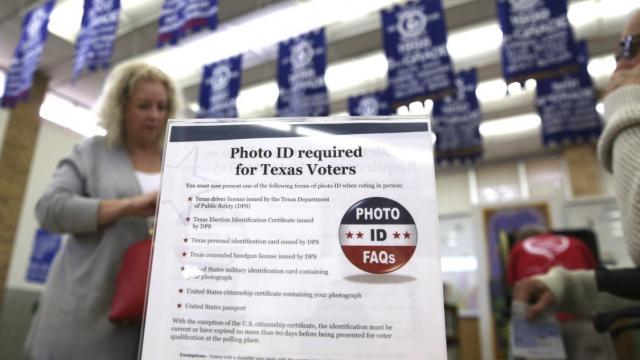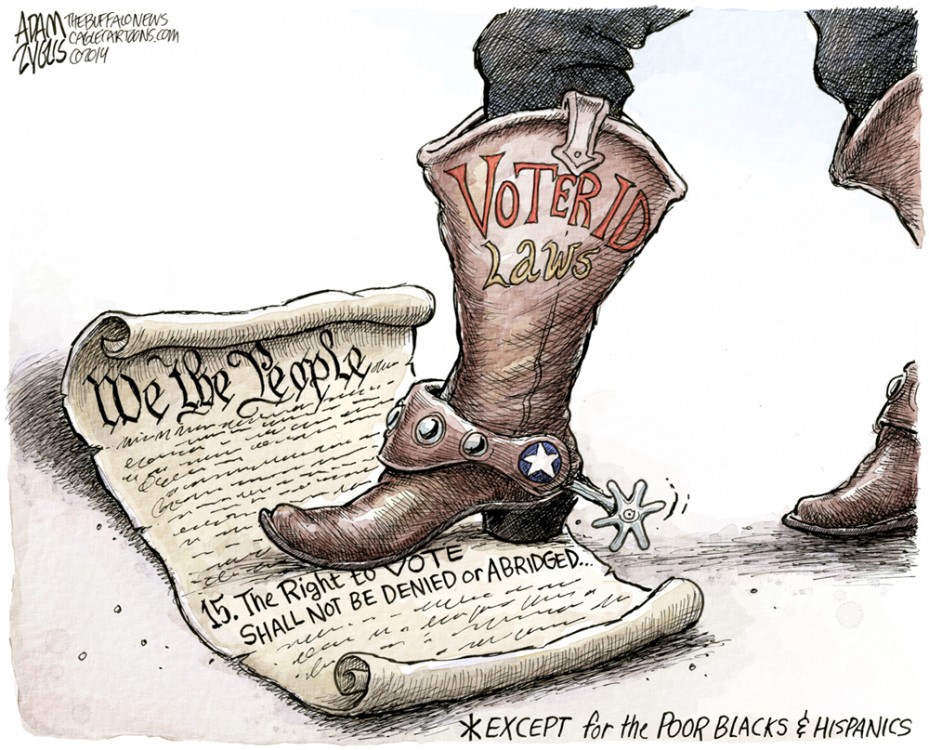
In the elections this November in Texas, registered voters will be required to a government issued voter ID or provide supporting documentation (like a utility bill) and sign a form declaring the reasons they did not obtain a government issued ID. All this because of a U.S. Fifth Circuit Court of Appeals decision this summer that ruled against the Texas NAACP and in favor of Texas Senate Bill 5, leaving the current Texas voter ID law in place.
In the meantime, SB 5 and similar legislation in other states is being contested by civil rights advocates on the grounds that these laws disproportionately disenfranchise minority voters. Now, civil rights groups are reaching out to voters and assisting them in registering to vote under the new law while motivating them to get to the polls in November.
To that end, the NAACP has issued a “2018 Pocket Voter Guide” for Texas voters. It provides information on voter registration, early and absentee voting, and the required forms of ID needed to vote.
The NAACP, which was one of the plaintiffs in the recent case upholding the Texas voter ID law, was successful getting a stricter 2011 voter ID law overturned leading to the new “softer” law in place. In 2017, a lawyer from the group told an audience at University of Texas at Austin:
“No jurisdiction has had more objections filed by the Department of Justice than Texas. As somebody that lives in Texas, I’m not that surprised, and anybody that lives in Texas that is aware of discrimination in the world might not be surprised.”
Hispanics, who will outnumber whites in Texas by mid-century, currently make up about 40 percent of the population, according to the Texas Demographic Center. The largely young population – about one-third of Hispanic voters are currently under 30 – has led to a formation of groups focusing on enfranchising and mobilizing Hispanic voters.
“If we engage them at a younger age, that is the best time to get them interested in voting,” David Sanchez, civic engagement director of Jolt, an Austin-based organization that educates and mobilizes Latino voters, told Occupy.com. “(Voting) hasn’t been passed down, so the youth are educating the older population.”
Jolt helps young Latino voters especially by speaking to them in person and directing them to Spread the Vote, an organization whose mission is to assist eligible voters with obtaining required ID for voting. In Texas, student ID’s are not one of the acceptable forms of ID allowed for voting.
Sanchez said his organization focuses on Texas Senate Bill 4 when talking to the community. SB 4 allows local police officers to ask people about their immigration status even at routine traffic stops. The Texas legislature, with a Republican majority, passed the law, which was signed by Republican Governor Greg Abbott in 2017. After legal challenges, portions of the law were stuck down but most of it was upheld.
VotoLatino, another Texas based organization helping drive Latino turnout, held its recent “Power Summit” in Austin. On the agenda were sessions on “Activism 101,” registering to vote and criminal justice reform. Featured speakers included Dallas Mavericks owner Mark Cuban, actor and board member Wilmer Valderrama and the former mayor of San Antonio and Secretary of Housing and Urban Development, Julian Castro.
The number of voters who have been discouraged from voting, or who are even more energized because of recently upheld controversial voting laws, remains unclear. Major Texas races – for the governor’s office and for Ted Cruz’s U.S. Senate seat – are being contested this midterm. According to renowned pollster Larry Sabato, Gov. Abbott holds a nine-point lead over his Democratic challenger while the Senate race may come down to the wire.
Sabato’s poll shows Cruz’s challenger, Beto O’Rourke, with a two-point lead. Other significant races include the Texas legislature where every seat is up for a vote in the House of Representatives. Fifteen of the state's 31 senate seats are also being contested.
With the legal question over the Texas voter ID law now settled, and other Texas laws challenged by civil rights groups still in effect, opponents of the voter restrictions must turn to legislative solutions to overturn them. Whether a mobilized Democratic base wins big in Texas this time around, the future, it would seem, is in their favor.












